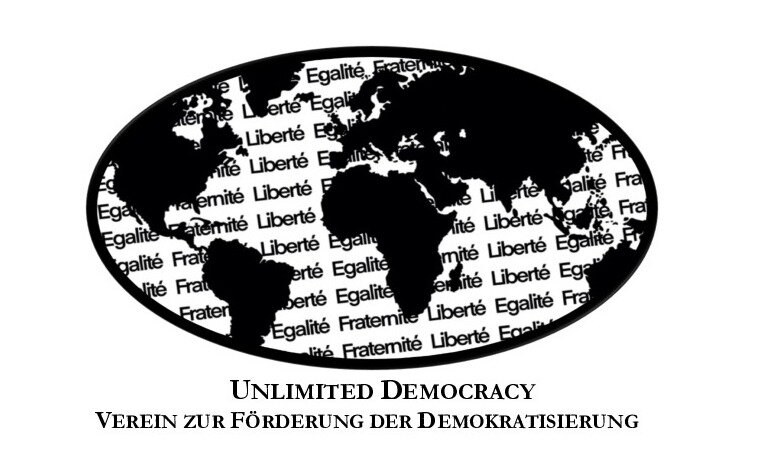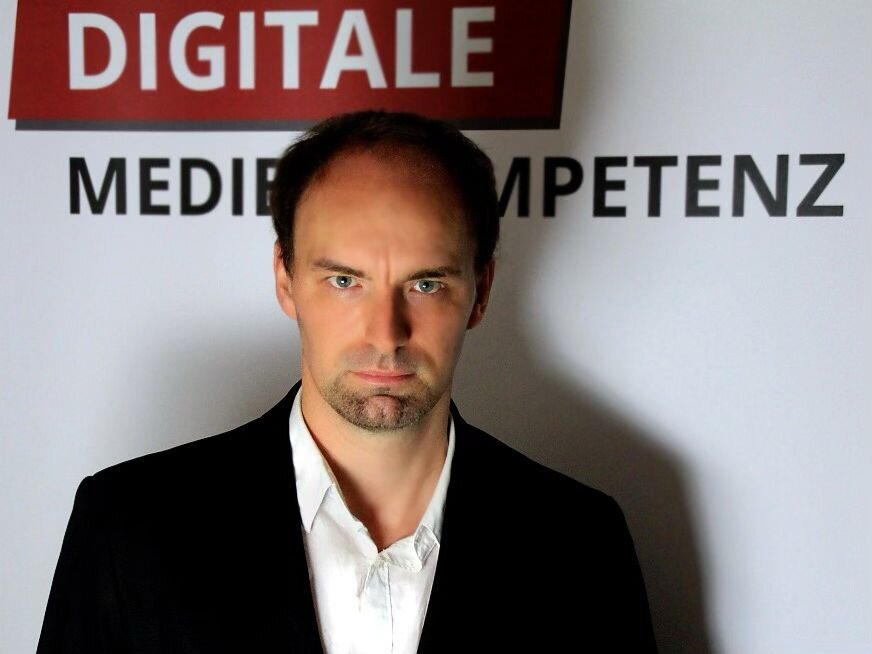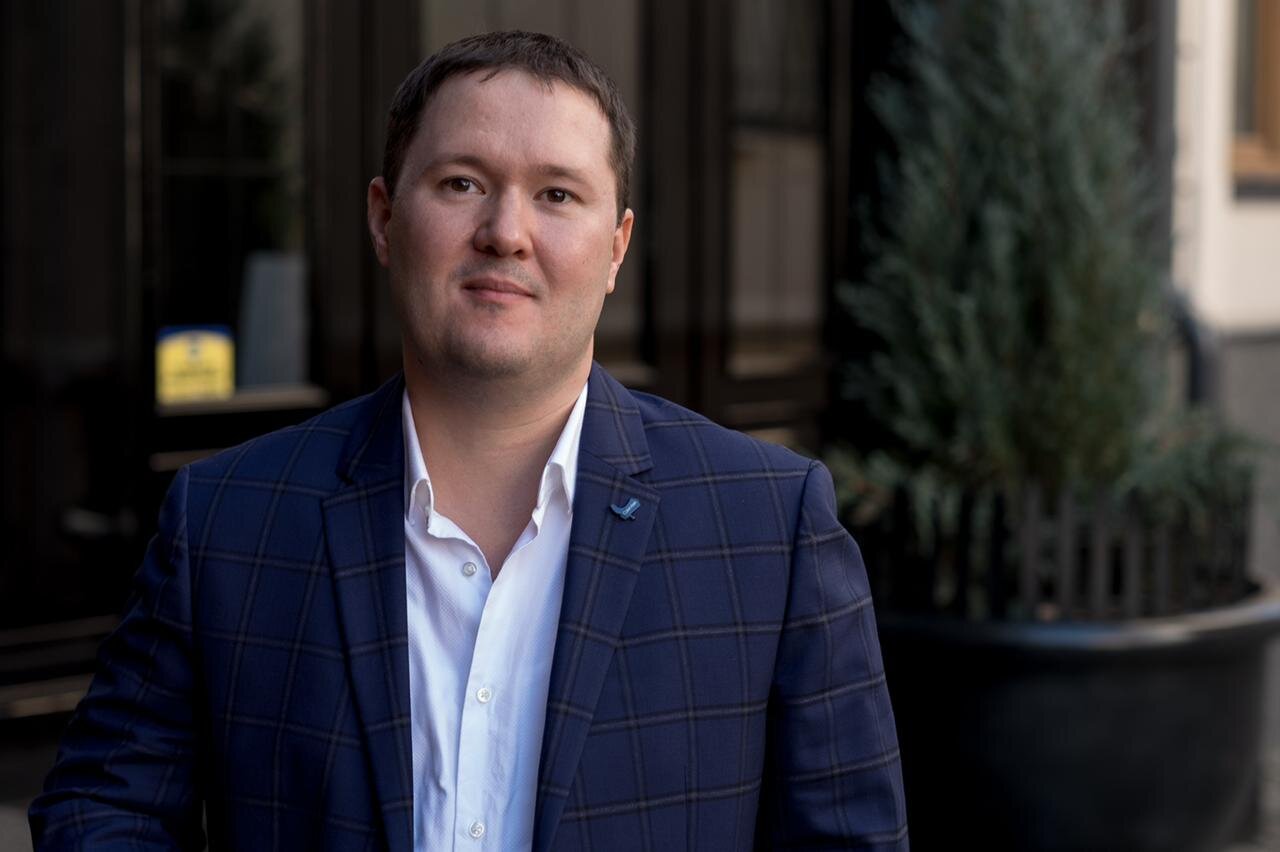PUBLICATIONS
Der imperfekte Weg der Ukraine
Im August dieses Jahres feiert die Ukraine den 30. Jahrestag ihrer Unabhängigkeit. Obwohl die Ereignisse der letzten sieben Jahre – die Revolution der Würde, bewaffnete Aggression von Russland, die Invasion der Krim, die Besetzung von Territorien und komplexe Reformen – eine gewaltige Herausforderung darstellten, zeigen sie auch, dass die Ukraine trotz ihrer Imperfektion weiterhin in der Lage ist, mehrere Krisen zu bewältigen, zu überleben und noch stärker zu werden, um ihre Unabhängigkeit und Souveränität zu bestätigen.
Der Autor:
Dmytro Tuzhanskyi is director of the Institute for Central European Strategy (Ukraine), Think Visegrad Fellow 2020 and IVLP alum.
Veröffentlicht am 19.10.2021
The art of the interview
The comparison of the two discussions allows us to see how important it is to understand the historical context, in which one interviews politicians. It is also crucial to see how different the political setup is in a given country. And finally, to pick up an appropriate journalist for the task.
Published on: 15.10.2021
Der KPÖ Wahlsieg in Graz, ein fragwürdiges Signal aus internationaler Perspektive
Die KPÖ rund um Elke Kahr gewann die Gemeinderatswahl in Graz deutlich. Während versucht wird, das auf auf erfolgreiche Kommunalpolitik zu reduzieren, zeigt sich, dass außenpolitische Irrfahrten nicht nur ein Merkmal der Bundespartei sind. Auch die KPÖ Graz/Steiermark neigt zu bedenklichen Positionen und freundlichen Kontakten mit Autokratien.
Veröffentlicht am 30.09.2021
Mr. Kacper Wanczyk
is a former Polish diplomat, worked, among others, as the Head of Division of Ukraine and Moldova in the Eastern Department, Head of Political-Economic Section in the Polish Embassy in Minsk, and a desk officer for economic and development cooperation in the Polish Embassy in Kabul.
Europe is the new Caspia
The deal, reached between Washington and Berlin on 21 June, basically approves the construction of Nord Stream 2. A gas pipeline bypassing Central Eastern Europe and delivering Russian gas to Germany.
The idea of using gas as a mean to tight Russia with Europe was floating within Russian decision-making circles already before the fall of USSR. The pipeline Yamal-Europe was born out of these plans. Obviously, it was planned and constructed in a particular international situation. Back then, decision-makers in Moscow couldn’t envisage problems with Belarus and Ukraine, and - probably - didn’t have enough technical possibilities to go underwater. Hence, a pipeline going through these former republics.
Times changed. Moscow realized that the Yamal pipeline may prove problematic. It would allow Ukraine and Belarus to have some leverage towards them. Minsk and Kyiv proved Moscow right, both capitals were trying to benefit from the pipeline. But Moscow also used gas deliveries as a political leverage towards them.
Published on 05.08.2021
Mr. Dmytro Tuzhanskyi, political observer, the Institute for Central European Strategy
Ukraine’s Imperfect Path
This August, Ukraine will be celebrating the 30th anniversary of its independence. Although the events of the last seven years, such as the Revolution of Dignity, Russia's armed-aggression, the invasion of Crimea, occupation of territories and complex reforms have been monumentally challenging, it also demonstrates that, while imperfect, Ukraine has the ability to meet multiple crises, survive and increase its fortitude validating its independence and sovereignty.
Published on 21.07.2021
Mr. Pavlo Shandra, member of the Odessa Rayon’s Council
Published on 25.06.2021
Decentralization in Ukraine: pros and cons
There is a phrase that claims to be a traditional Chinese curse – “May you live in interesting times”. While seemingly a blessing, the expression is normally received ironically in the meaning that life is better in ”uninteresting times” rather than in the interesting ones. This statement can also be used as the main characteristic of the modern history of Ukraine.
On August 24, 2021, there will be a great anniversary- thirty years since Ukraine has declared its independence and has started its transition to a democratic state with a strong market economy and the rule oflaw.However, this road was not as easy as some might have thought at the beginning. Soviet Union authorities always used to treat people as immature, who cannot make another choice in their life, rather than to rely on the communistparty’svision.
Haka near the rose garden
Presidents Joe Biden and Vladimir Putin came to Geneva-situated villa La Grange to meet face-to-face for the first time. The run up to the meeting was used by administrations of both presidents to well prepare the ground for the meeting. While Moscow was mostly preoccupied with actions leading to having the meeting at all, Washington focused on creation of an environment in which the US president would look like a strong representative of the West.
The meeting ended without any breakthrough, save for the return of Ambassadors and a promise of consultation between respective foreign ministries. However, a short joint communique, eventually issued by the two presidents, showed that they operate within an old framework of their bilateral relations. Therefore, a meeting was not a new stage of these relations. It was merely a probing exercise.
Published on 17.06.2021
Democrats and authoritarians
Raman Pratasevich’s brutal arrest, that involved kidnapping of a plane flying between the two European countries, shocked the Western public opinion.
In fact, this was not an extraordinary event. During his long reign Alexander Lukashenko was jailing, oppressing, and torturing his opponents. In the fight against democratic ideas, he was always close with hie Russian colleague – Vladimir Putin. Secret services of the two countries are known for joint operations including kidnapping people.
Pratasevich is not an exception. He is one of many, that fell victim to the Moscow-Minsk actions towards the West. Their need to assert their position towards western capitals, particularly – Washington.
How should the West behave? The answer lies in long term, systemic approach. An approach that turns around Russian-Belarusian game table. They focus only on the US – the EU should take the leading and strategic role. Minsk and Moscow use autocratic tools – we need to support direct, grassroots democracy in the two countries.
Published on 11.06.2021
Mr. Kamil Kłysiński
Graduate of the Adam Mickiewicz University in Poznan (Eastern Europe Studies and Politology Faculty).
Since 2007 Senior Fellow at Department for Ukraine, Belarus and Moldova at Polish Centre for Eastern Studies OSW.
Area of expertise: Domestic political and economic situation in Belarus, Belarussian foreign policy, tendencies in society.
Towards “militia state”. Evolution of Belarusian authoritarian system after presidential elections in 2020
The article describes how Alexander Lukashenko won the first presidential election in 1994 at the expense of his populist promises, emphasizing the benefits of a democratic system and a free market economy. The first president of Belarus very soon after the inauguration showed a tendency to an authoritarian model, which was a consequence of his mental state. At the very beginning of his rule, Lukashenko initiated several effective steps to destroy the independence of key state institutions.
For many years, the Belarusian regime has been a typical authoritarian system, meaning a monopoly on governing the country for Lukashenko and his circle. The end of this balanced authoritarian system began in the spring of 2020, with growing dissatisfaction with the regime among the majority of Belarusian society caused by the government's disregard for the threat of the COVID-19 epidemic, election fraud and brutal repression of Protestants. Fearing the loss of power, Lukashenko relied even more on the power institutions, whose loyalty is now the main factor guaranteeing his continued retention as president. In Belarus, a "militia state" is being formed, which, having lost the support of the majority of the population, now relies primarily on brute force, widespread control and persecution of critics of the regime.
Published on: 3.06.2021
Mr. Kamil Kłysiński
Graduate of the Adam Mickiewicz University in Poznan (Eastern Europe Studies and Politology Faculty).
Since 2007 Senior Fellow at Department for Ukraine, Belarus and Moldova at Polish Centre for Eastern Studies OSW.
Area of expertise: Domestic political and economic situation in Belarus, Belarussian foreign policy, tendencies in society.
Mr. Ihor Lossovskyi, Ph.D., Envoy Extraordinary and Plenipotentiary of Ukraine of the First Class, Deputy Permanent Representative of Ukraine to the International Organizations in Vienna
Dr. Andreas Umland, ein Experte am Ukrainischen Institut für die Zukunft in Kyjiw
Illusive alliance: troublesome integration of Russia and Belarus
Belarus became independent in 1991, but due to historical heritage of close ties with Russia and Russian influence and linguistic and cultural proximity, very difficult economic situation and importance of supplies of Russian gas and oil, Minsk was from the very beginning forced to cooperate very closely with Moscow. Alyaksandr Lukashenka as a winner of the first presidential elections in Belarus, hold in 1994, supported idea of the unity of Slavic nations and openly pursued towards integration with Russia. However, contradictions of interests of both sides complicated this process. Responsible for deadlock was first of all Lukashenko, who quite quickly understood that Vladimir Putin strives to integration on Russian conditions, which de facto will lead to gradual limitation of Belarusian sovereignty. This convoluted dialectics of relations between Minsk and Moscow has been changed dramatically with developments in Belarus, just after the end of voting in presidential elections at 9 August. Surprised by unprecedented scale of protests, Lukashenko ordered to use brutal force against demonstrating people, has ended up dialogue with the West and Kremlin again became “the best ally” of Belarusian authoritarian regime. However, another conflict between “the best friends” is only a matter of time.
Published on 19.5.2021
Three sources and three pillars of Ukraine's efforts in diplomatic resistance to Russian aggression
The erosion of the non-proliferation regime is only one element of the "Pandora's box" that broke Putin's regime. The entire international security architecture formed as a result of the Second World War is under threat. Russia's occupation and attempts to annex the Autonomous Republic of Crimea and the city of Sevastopol mark the first time in postwar history that one country has illegally seized another country's territory in central Europe. For the last time in recent history, such crimes were committed by the Nazis. If Russia goes unpunished for setting a precedent for military aggression and occupation of foreign territories in the 21st century, the further consequences for European security as a whole can be extremely sad, as there are many other historical examples of acute border conflicts on the continent.
Published on: 16.11.2020
Die beiden Nord Stream-Projekte und die so genannte „Ukraine-Krise“
von Dr. Andreas Umland
Die weltweiten Rückwirkungen der Corona-Pandemie werden offenbar nicht nur ökonomischer Art sein, sondern auch eine sicherheitspolitische Dimension haben. Zu befürchten ist insbesondere, dass fragile Staaten, schwelende Konflikt und instabile Vereinbarungen wieder in Bewegung geraten und ohnehin angespannte Situationen neuerlich eskalieren. Die gilt etwa für Länder innerhalb geopolitischer Grauzonen, welche nur gering durch internationale Organisationen strukturiert sind. In Europa betrifft dies in erster Linie die Ukraine.
Veröffentlicht am 9.07.2020
Mr. Dmytro Tuzhanskyi, political observer, the Institute for Central European Strategy
Liberal democracy in Hungary: the end of history or the new beginning?
written by Dmytro Tuzhanskyi, political observer, the Institute for Central European Strategy
The illiberal democracy in Hungary does not necessarily constitute an ideological “end of history”, the term coined by Francis Fukuyama. It is even more so, since in Fukuyama’s opinion, “the end of history” is possible only after the triumph of the liberal democracy.
Published on: 1.07.2020
Dr. Andreas Umland, ein Experte am Ukrainischen Institut für die Zukunft in Kyjiw
Warum Moskau schließlich die okkupierte Krim an Kyjiw zurückgeben wird
von Dr. Andreas Umland
Entgegen auch im Westen populärer Kremlmythen gibt es keine tiefe Verwurzelung der Krim in der russischen Nationalgeschichte. Vor diesem Hintergrund werden die Russen immer weniger bereit sein, in einer Zeit, in der sie zunehmend unter den Auswirkungen der Coronakrise leiden, knappe finanzielle Ressourcen zur Subventionierung der entlegenen Halbinsel aufzuwenden.
Veröffentlicht am: 26.06.2020
Mr. Gregor Razumovsky
The distortion of reality and the defeat of truth: Russia`s celebration of Victory Day
By Gregor Razumovsky
Mr. Putin`s behaviour should not be interpreted as an irrational reaction to an imagined threat. Nor is it a sign of alertness, a signal that Russia is prepared to defend itself. In reality, the Russian President is instrumentalising rampant apprehension, misgivings and envy felt in Russia against the “Western World”, to secure his position as ruler of Russia. When the Russian Federation will have its new constitution, the country will have its very own new Vozhd. Perhaps things will work out for the best and Minsk will not become the new Munich. This is to be hoped, even though appeasement policy vis à vis the Kremlin seems to be the discrete consensus between politicians in EU and NATO alike. Sadly, the more things change, the more they stay the same.
Published on: 07.05.2020
Herr Rainhard Kloucek, Generalsekretär der Paneuropabewegung Österreich
Die Ukraine als europäischer Spieler
von Rainhard Kloucek, Generalsekretär der Paneuropabewegung Österreich
Die Ukraine verteidigt die Grenzen und die Freiheit Europas. Geht Russland aus dem Konflikt als Sieger hervor, dann ist nicht nur die Ukraine der Verlierer, sondern ganz Europa.
Veröffentlicht am: 24.04.2020
Mr. Ihor Lossovskyi, Ph.D., Envoy Extraordinary and Plenipotentiary of Ukraine of the First Class, Deputy Permanent Representative of Ukraine to the International Organizations in Vienna
The Budapest Memorandum: Background and basic facts
Dedicated to “Budapest memorandum: 25 years since nuclear weapons relinquishing” panel discussion, an independently organized event scheduled to take place in Vienna on 20th of February 2020.
Twenty five years ago Ukraine gave up security, guaranteed by nuclear weapons, in that time the third largest arsenal in the world, in exchange for security guaranteed by the Budapest Memorandum.
Published on: 22.02.2020

















